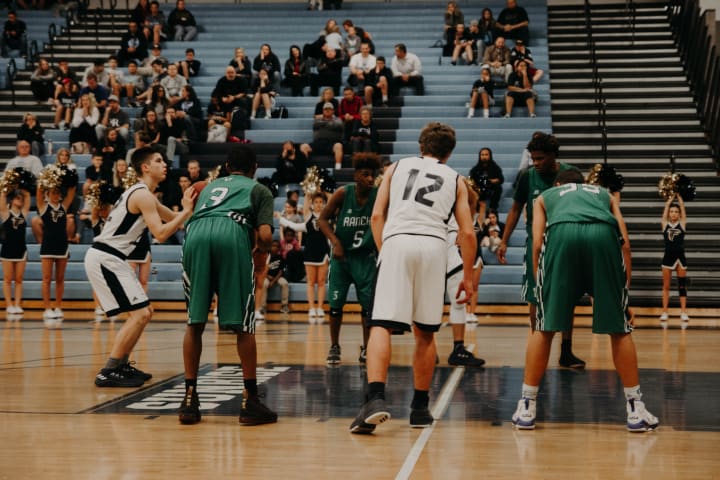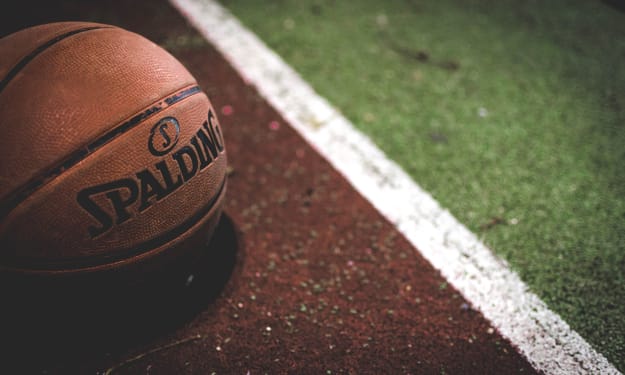Ways Sleep Can Make You a Better Athlete
There's no doubt that sleep is crucial for athletes, both physically and mentally. Here are some of the important ways sleep can make you a better athlete.

There are a lot of ways sleep can make you a better athlete. Many of those ways involve physical functions, like reflexes and muscle performance. Other ways are more long-term, like the importance of sleep in preventing illness or recovering from injury. And still others have more to do with the cognitive and psychological benefits of getting enough sleep—because of course, athletic performance is not just about physical speed, strength, or ability. All sports, to some extent, have a mental component. To perform your best, you not only need your body to be in peak condition, but your mind as well. While there will some differences in amount and schedule of sleep between individuals, just about every aspect of athletic performance requires that you get plenty of good quality sleep, no matter who you are or what your sport.
It strengthens your muscles.

One of the biggest mistakes that young athletes make in training is not giving their muscles enough time to rest. Movie montages of athletes training night and day, their performance shooting up through all their work, are very inspiring—but growth doesn't actually happen during the workout itself. When you go through a tough workout, your muscles actually tear a tiny bit. This itself doesn't strengthen them, but they do become stronger when they heal from those tears. In order for them to heal, you have to get plenty of rest in between difficult workouts. Muscle growth is one of the most important ways sleep can make you a better athlete.
It boosts your mood.

Insufficient sleep has a very close connection to mood. There is an abundance of literature in the field of psychology that demonstrates this relationship in both the short and long term. First of all, not getting enough sleep each night can cause and exacerbate depressive symptoms, making it harder to have a positive outlook. Getting plenty of sleep helps keep you optimistic, and that positive outlook is crucial to athletic performance. In the short term as well, not getting at least seven to nine hours of sleep can cause irritability and feelings of stress, and can limit your ability to regulate your emotions. This means that if you don't do what you need to for a relaxing sleep, all the stress, anxiety, anger, disappointment, and other emotions that you might feel while playing a sport or other athletic activity are magnified, causing serious damage to your mental game.
It improves your reflexes.

Successful athletes must have razor sharp reflexes and be able to make constant, split-second decisions. This is another of the ways sleep makes you a better athlete. Studies have shown that sleep deprivation can drastically slow your reaction time. In fact, some studies indicate that sleep deprivation might be just as detrimental to quick decision making as drinking alcohol. This difference may be nearly unnoticeable, consciously, but a delay in decision making or reaction time of even as much as a second can make all the difference to an athlete, the difference between winning and losing, or even the difference between a successful move and an injury.
It improves your focus.

Competitive athletes can't afford to be distracted or have wandering minds in the midst of a competition. Success in athletics requires complete focus. And getting proper sleep boosts your alertness and focus, helping you towards optimal performance. It does this in a couple of ways: first, as already mentioned, sleep has a powerful impact on your mood, and the ability to regulate your emotions during intense athletics is crucial. But more than just helping remove emotional distractions, sleep boosts your alertness, helping you to focus your attention more acutely, and increase your ability to actively direct that attention quickly and accurately.
It improves your memory.

It may seem like athletic success is largely physical, and that memory should not have a significant impact on performance. But sleep improves all kinds of memory—not just your ability to remember names, dates, and events. And memory is crucial to athletic improvement. While you could improve your physical potential through strength and stamina training without any memory at all, you would still not likely be a very successful athlete without the steady development of muscle memory that helps you hone the necessary skills to succeed in your sport. This is another of the ways sleep can make you a better athlete. Between improved memory of useful ideas and events, like training strategies, and improved muscle memory, the importance of sleep in effective athletic training cannot be understated, and the effects of chronic sleep depravation cannot be overstated.
It boosts your intelligence.

Many, if not most, of the ways sleep can make you a better athlete regard its effects on your mental performance, rather than the physical (though it has important effects on both). In both the long and short term, sufficient sleep has been strongly linked to IQ and cognitive function. This isn't just important for test scores, of course—intelligence and optimal cognitive function are crucial to improving your athletic performance. Getting plenty of good quality sleep keeps you sharp, focused, and able to make decisions not only quickly, but accurately—it doesn't matter if you respond quickly, if your response loses you the game, match, or point anyway. This is why it's important to implement any necessary tips for falling asleep and get seven to nine hours of sleep each night.
It boosts your immune system.

Lack of sleep can wreak major havoc on your immune system. This can affect your athletic performance in many different ways. First, you obviously won't be performing optimally if you're sick. Second, you'll have much more difficulty recovering and getting back to your training if your immune system is weakened. But most importantly, your immune system is crucial for recovering from injuries. This means that getting plenty of good quality sleep could be the difference between a career-ending injury, and a minor setback.
Having a strong immune system is especially important for athletes, because of the physical strain that strenuous exercise puts on the body. This physical stress puts you at an increased risk for illness and injury, which you want to avoid at all costs.
It boosts your recovery from injury.

Athletes are, unfortunately, at a very high risk for injuries of all kinds. When you're doing strenuous physical activity on a regular basis, you can develop long-term injuries from things like joint stress, as well as placing yourself at risk for accidental injuries like sprains and broken bones—especially if your sport involves potential contact, like football or basketball. And as previously mentioned, sleep is absolutely crucial for recovering quickly from any injury.
First, physical injuries require plenty of rest themselves. No injury can heal if you don't give it plenty of opportunity to rest. But secondly, as previously mentioned, sleep is absolutely crucial for the immune system to operate effectively, which means that a lack of sleep could seriously slow the healing progress for any injury.
It reduces your risk of injury.

In addition to helping you heal from injuries, one of the ways sleep can make you a better athlete is by reducing your risk of injury in the first place. Because sleep deprivation can slow your reaction time up to 300 percent, as well as have other negative effects on your focus, attention, and general cognitive function, it decreases your ability to respond quickly to potentially injury-inducing situations. The split second that sleep deprivation could cost you in a high-stakes situation could make the difference between a win, or at least an average match or practice, and a painful injury. So by getting good quality sleep every night, you can best protect yourself from unexpected injuries.
It quite simply improves your performance.

These many ways sleep can make you a better athlete encompass a wide range of mental and physical activity that relies on this process. But these are just individual factors that generally contribute to athletic performance. But what do these improvements look like in practice?
Well, a Stanford study of the relationship between sleep extension and athletic performance in basketball players demonstrated an extremely significant role. In fact, by adjusting their sleep schedules and increasing the number of hours of sleep they got each night, these basketball players improved their sprint time drastically, and improved their free throw accuracy by a full 9 percent. This demonstrates a wide-ranging effect of sleep on athletic performance.
About the Creator
Nicola P. Young
Lover of Books, Saxophone, Blogs, and Dogs. Not necessarily in that order. Book blogger at heartofinkandpaper.com.






Comments
There are no comments for this story
Be the first to respond and start the conversation.